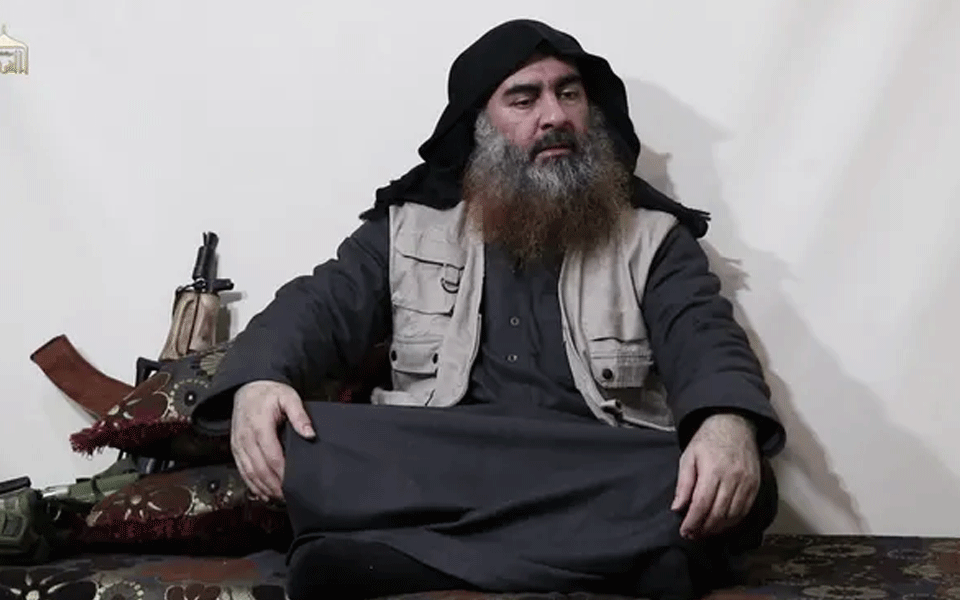Baghdad: The Islamic State group's elusive chief Abu Bakr al-Baghdadi has purportedly appeared for the first time in five years in a propaganda video released Monday.
It is unclear when the footage was filmed, but the man said to be Baghdadi referred to last week's deadly attack in Sri Lanka and to the months-long fight for IS's final bastion Baghouz, which ended in March.
"The battle for Baghouz is over," he said, sitting cross-legged on a cushion and addressing three men whose faces have been blurred. "God ordered us to wage 'jihad.' He did not order us to win," he said.
In a segment in which the man is not on camera, his voice referred to the April 21 Easter attacks in Sri Lanka, which killed 253 people and wounded nearly 500, as "vengeance for their brothers in Baghouz".
The man said to be Baghdadi insisted IS's operations against the West were part of a "long battle," and that IS would continue to "take revenge" on members who had been killed.
"There will be more to come after this battle," he said.
The man in the video had a long grey beard that appeared dyed with henna and spoke slowly, often pausing for several seconds in the middle of his sentences.
He was identified as Baghdadi by both the SITE Intelligence Group, which tracks IS, and Hisham al-Hashemi, an Iraqi expert on the group.
Baghdadi, who is now 47, appeared for the first and last time in public in Mosul in 2014, where he declared an Islamic "caliphate" in the swathes of territory IS then held in Syria and Iraq.
He was reported killed or injured multiple times since then.
His last voice recording to his supporters was released in August, eight months after Iraq announced it had defeated IS and as the US-backed Syrian Democratic Forces closed in next door in Syria.
The SDF at the time said it did not believe Baghdadi was in Syria.
Let the Truth be known. If you read VB and like VB, please be a VB Supporter and Help us deliver the Truth to one and all.
Dubai: Smoke was seen rising from an area near the United States Consulate in Dubai, according to witness accounts cited by Reuters.
There was no immediate official confirmation on the extent of damage or whether there were any casualties in the incident.
Earlier, the US embassy in Riyadh, Saudi Arabia’s capital, was also attacked. Authorities reported damage to the premises, but no casualties were recorded.
The developments come amid heightened tensions in the region, with Iran continuing to target US interests in the Middle East following deadly attacks launched on Saturday by Israel and the United States.
Near US embassy in Dubai pic.twitter.com/z5VTZNVxNO
— Sahil Shah (@thesahilsshah) March 3, 2026





